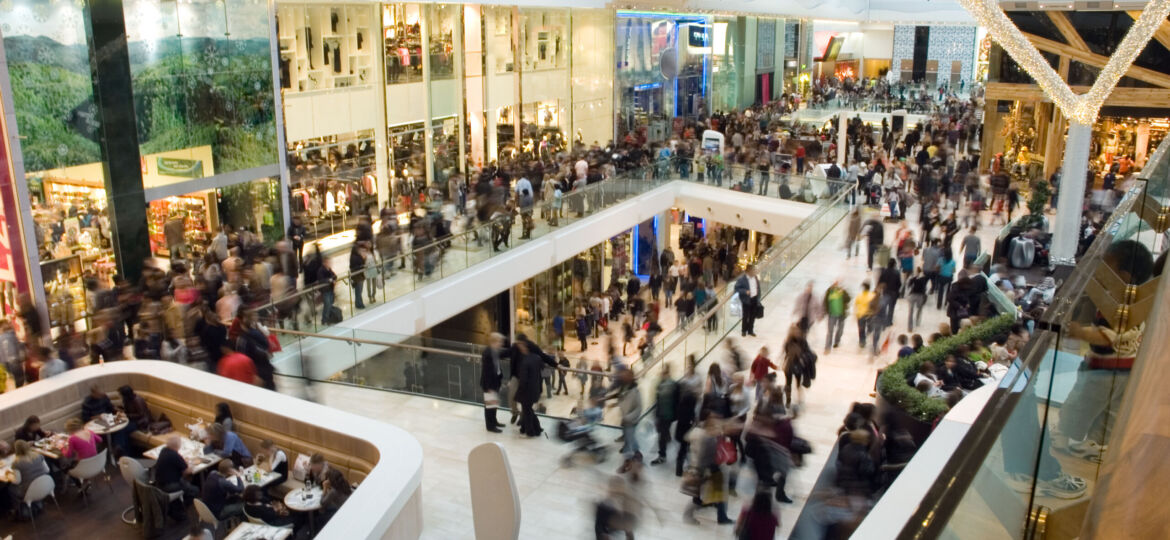As we step into the second half of 2023, our CEO, David Fuller-Watts reflects on the biggest trends affecting the retail industry and what lies ahead.
The retail industry was expected to be shaped by various factors this year, including innovation, performance improvements and environmental sustainability. So, six months in, which trends are coming to the fore and what does this tell us about the future?
Greater efficiency
Although political turbulence has eased, economic uncertainty remains high across the globe. According to the British Chambers of Commerce latest economic forecast, inflation is the top concern for businesses closely followed by labour shortages and recruitment hurdles. On top of these issues, retailers are having to contend with supply chain pressures and rising costs.
As predicted by Deloitte, these challenges mean that improving efficiency is a top priority for retailers. And with no signs of economic stability on the horizon, the need to streamline operations will continue this year and next.
Automation is key with many retailers exploring ways in which technology can eliminate manual tasks across their business from the warehouse through to the shopfloor.

A focus on engagement
Despite economic and operational challenges, there are positive signs too. Larger shopping centres are seeing tenants’ sales rise leading to higher retention rates and rents.
From our conversations with the owners and managers of shopping centres, this success has, in part, been driven by an increased focus on tenant engagement. Those that are prioritising the needs of their tenants and providing digital tools which enable them to communicate more effectively are now realising the benefits.
More streamlined, central communication not only improves the experience for tenants but enables data to be collected more effectively. From sales figures through to feedback on marketing campaigns, this data is helping to inform, strengthen and evolve management strategies, putting shopping centre owners in a stronger position for the rest of the year.
An increased focus on creating communities in retail environments has also seen consumer engagement rise. A growing number of retailers are using technology to provide a bespoke experience that extends beyond the purchase of goods or services, encouraging interaction with a brand.

Artificial intelligence (AI)
AI continues to have a huge impact on retail; a trend that will only get bigger. With the ability to generate a vast range of benefits including improved customer satisfaction, greater efficiencies and more impactful data, investment in AI is on the rise.
Findings in a Future Consumer Index (FCI) report recently published by EY highlights the potential of AI adoption in retail. The study found that while only 22% of consumers surveyed have a good understanding of the technology, 50% are comfortable using AI to improve purchase experiences. A total of 61% of consumers trust AI to offer tailored promotions and deals, and 58% trust the technology to provide purchase reminders.
For retailers that want to stay ahead, the use of AI can’t be ignored. But with so many capabilities, AI also presents a steep learning curve. This means many retailers still need to invest the time in researching how best to apply the technology to ensure it is harnessed in the right way.
Mobile technologies
The adoption of mobile technology is a trend which was accelerated by the pandemic and continues at pace. Its evolution is playing a vital role in improving the experience for consumers as well as retail tenants and their staff.
Personalisation is one of the biggest benefits, bringing tailored offers, promotions and updates to consumers’ fingertips through the latest Apps. This not only helps to improve engagement with a brand, but drives footfall and sales.
Centralising information though mobile technology can improve the experience in other ways too. It enables consumers to directly communicate with retailers, helping them to receive a swifter response to any queries. At shopping centres, multiple applications can be brought onto one platform, providing shoppers with information that helps them to plan their visit more effectively, all from the palm of their hand.
Environmental sustainability
With retailers under increasing pressure to reduce their environmental impact, technology is playing a more prominent role in sustainability. Traceability is one area where retailers are taking a more proactive approach leading to the adoption of technology which improves data collection, tracking and supply chain visibility.
In shopping centres, where increasingly, both landlords and tenants are setting environmental targets, the need to work together is intensifying. Data capture is a fundamental part of this strategy and another area where technology is essential.
Digital platforms can be used to measure energy use, providing insights into operational changes which could improve a shopping centre’s carbon footprint. Environmental performance can be tracked in real time and data gat

Building resilience
There is no denying that retailers are operating in a tough trading environment, and this is impacting consumer confidence and behaviours. However, the industry has been quick to adapt and continues to respond quickly to customers’ changing needs and expectations.
A focus on increasing productivity, engagement, the customer experience, and sustainability will continue to define the sector and see new technologies form a vital part of retailers’ strategies in 2023 and beyond.
To find out how Mallcomm can help retailers respond to the latest trends, or to book a demo, please contact us below.


